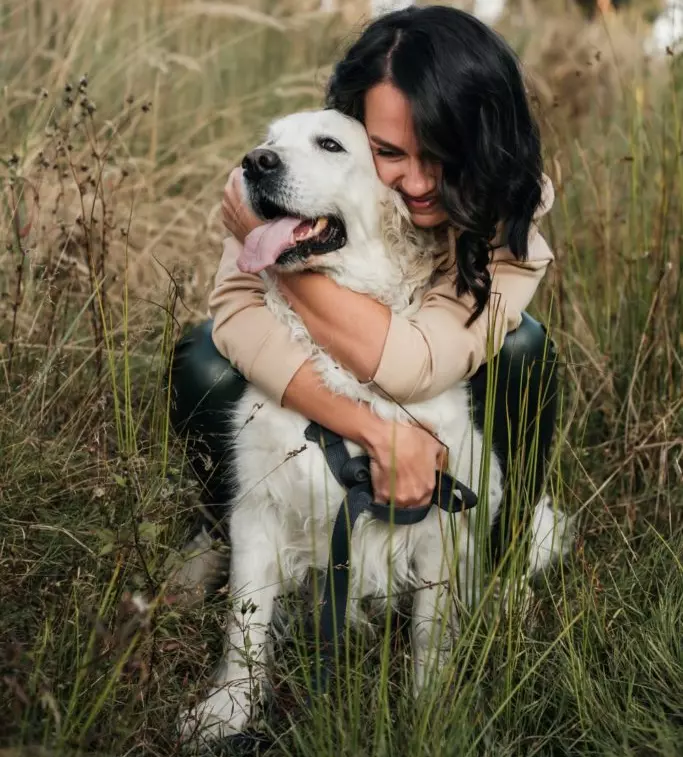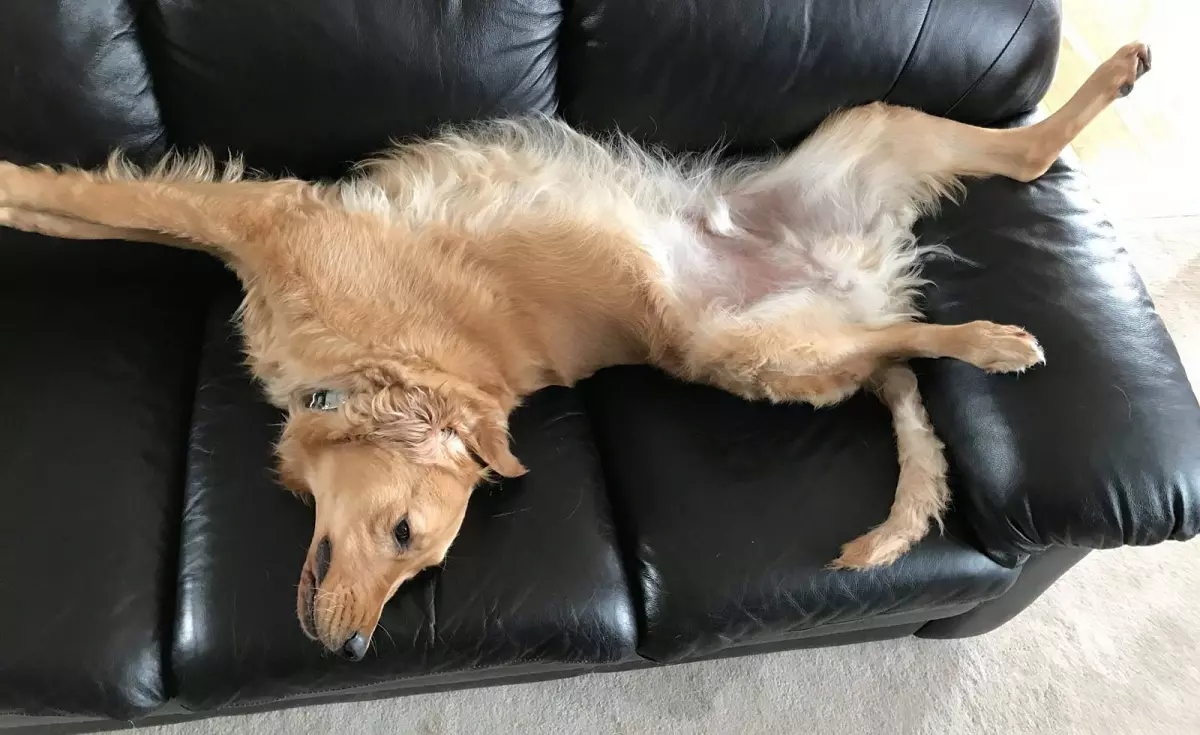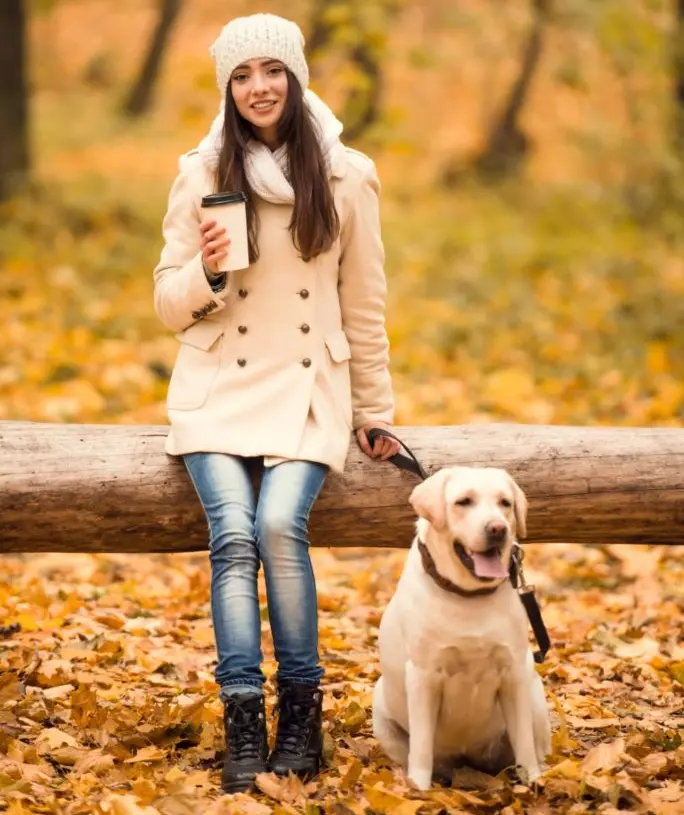Why Is My Dog Panting And Restless? 7 Possible Reasons
Why is my dog panting and restless? These two symptoms can point out to different health problems. It could be an innocent case of excitement or chronic illnesses like heart failure. The only way to determine what causes panting and restlessness on your dog is to bring it to the vet. The veterinarian will then conduct medical tests to diagnose what’s wrong with your pet.
Why dogs pant and become restless


Panting and restlessness are multi-faceted symptoms. It could be due to a lot of things. Still, the following are the most common and notorious reasons why your dog experiences such symptoms.
1. Heatstroke and exhaustion
Dogs don’t sweat, so their way of cooling down is through panting. So if you notice that your dog is panting and restless after a long walk, heatstroke might be taking place. This is a very dangerous condition, which can escalate in a matter of minutes.
Overheating or heatstroke can happen to any dog, but flat-faced and deep-chested breeds are more susceptible to their airway construction.
Here’s what you need to do if your dog is having a heatstroke:
- You must cool down your dog the moment you spot signs of heatstroke. It includes panting, restlessness, drooling, and lethargy. please read here what are the signs of respiratory distress in a dog.
- Move your dog to a cool spot and douse its body with cool water.
- Avoid cold water as it can cause shock, which will make it more difficult for the pooch to breathe.
- Give the dog cool water to drink, but do so in small amounts.
- Bring your dog to the vet if its condition has stabilized enough for travel.
2. Brachycephalic Obstructive Airway Syndrome (BOAS)
The Brachycephalic Obstructive Airway Syndrome (BOAS) happens to flat-faced or brachycephalic canines. Some of the flat-faced breeds are Pugs, Bulldogs, Shih Tzus, Boston Terriers, and so on. This causes dogs to suffer breathing difficulties after exercise, exposure to heat, or eating a meal. please read here do shih tzus bark a lot.
Anatomically speaking, flat-faced dogs have shorter snouts, which makes them prone to respiratory distress – one of which is BOAS. The dog’s upper respiratory tract will contract due to BOAS. This is followed by breathing in the mouth (panting) and restlessness.
If not addressed, this condition will branch out to serious complications. The airways may swell and put pressure on the dog’s heart. Eventual death because of BOAS can happen, too.
The vet will assess the dog’s breed, medical history, and physical wellness to diagnose if it has BOAS. Surgery might be needed if there is an elongation or intense swelling within your dog’s respiratory tract.
3. Cushing’s disease
Cushing’s disease is a condition that can cause panting, restlessness, thirst, skin thinning, and other symptoms. This dog condition can either be adrenal or pituitary-dependent, but both will cause discomfort on your pet.
This condition happens when your dog produces excessive cortisol, a stress hormone. It could be tricky to diagnose this medical problem because of its symptoms that are also observed in other conditions.
Moreover, treatment for Cushing’s disease will vary depending on the severity of the case. Dogs with mild panting and restlessness can get by without special treatments. Some will be prescribed a medication or undergo a surgical operation on the worst cases.
4. Heart failure
Another cause of panting and restlessness among dogs is heart failure. Take note that this condition is serious and must be given immediate medical attention. Heart failure symptoms also include coughing and lower exercise tolerance.
Congestive heart failure will also lead to muscle wasting and weight loss. You will even notice that your dog tires out more easily than usual.
To prevent any adverse complications, your dog must be checked by a vet right away. The dog doctor will listen to the dog’s heart using a stethoscope to spot any irregularities. The vet will also identify murmur locations, which is a sign of abnormal blood flow or blockages. X-ray, urine, and blood tests will also be performed for proper diagnosis.
Once the results are out, the vet will formulate a regimen or treatment to suit your dog’s condition. Take note that this is life-long care since congestive heart failure may recur if the dog isn’t taken care of well.
5. Poisoning
If your dog has been given a clean bill of health, one possible reason to panting and restlessness is poisoning. This is accompanied by drooling, vomiting, diarrhea, and lethargy. These symptom combinations make poisoning a hazardous condition. You must bring your dog to the vet as soon as you discover the problem.
Your dog probably ingested a toxic substance outdoors. However, many pet owners also overlook indoor hazards that can lead to poisoning. Food items like raisins, chocolate, grapes, and onions are toxic to canines. If your pet ingested a substantial amount of these food items, poisoning would set in.
Also, it’s best to evacuate your dog first if you are planning to apply rat poison all over the house. This is a notorious toxic substance that has put the lives of many dogs at risk.
6. Physical injury
Another thing you should watch out for is injuries. Dogs that are in pain would often pant or strain. They will also become restless as they lick, chew, or paw the painful area. Take note that some dogs will often mask their pain through normal behavior like wagging their tails, pawing their faces, and so on.
It’s possible that your dog fell from an elevated surface or that a vehicle hit it outdoors. You should keep an eye on these symptoms so you can bring your dog to the vet for proper examination. Minor injuries can heal on its own, but some may worsen over time.
7. Obesity
Obesity and being overweight will also cause breathlessness on your dog. Your dog will get tired easily, even for just a short walk due to the excess weight. Also, such an unhealthy weight will make your pooch more susceptible to heatstroke and heart failure.
Dogs that weigh 10% to 20% more than their prescribed weight are considered overweight. However, if the pooch weighs 20% or more than its healthy weight, it will be classified as obese.
Flat-faced dogs are more prone to obesity, which increases their risk of the conditions I’ve discussed above. As a responsible dog owner, you should keep your dog’s weight within its breed’s advisable range. please read here what is the calmest dog breed
What to do if my dog is panting and restless?

The best thing to do in this situation is to bring your dog to the veterinarian right away. Respiratory symptoms should never be taken lightly. The difficulty of breathing could be a sign of a bigger, underlying problem. please read here veterinarian dog bite liability
Also, avoid self-medicating your dog. In the end, it may only do more harm than good. Although some cases of panting and restlessness are not serious, you shouldn’t take chances, especially if you have an old and ill doggo.
Proper diagnosis is necessary so the vet can provide the ideal treatment. Most health problems among dogs can be treated or managed if diagnosed as early as possible.
Why is my dog panting and restless at night?

If your dog’s restlessness and panting only happen at night, it’s possible that your pooch is scared or uncomfortable being alone. Also, old dogs may suffer from cognitive dysfunction, which may cause it to bay or howl at night, among other alarming habits.
Separation anxiety is usually the common reason if your dog suffers from these symptoms at night. It will help if you’ll place the dog’s bed inside your room in the meantime as you train it to be more independent.
Conclusion
Why is my dog panting and restless? It could be due to heatstroke, heart problems, respiratory issues, and other medical conditions. Whatever it is, you must seek immediate medical attention for your dog. Early diagnosis will prevent any complications, especially if the culprit behind the panting and restlessness is a life-threatening condition. You should be watchful of any changes in your dog’s behavior so that you can find the right solution.
